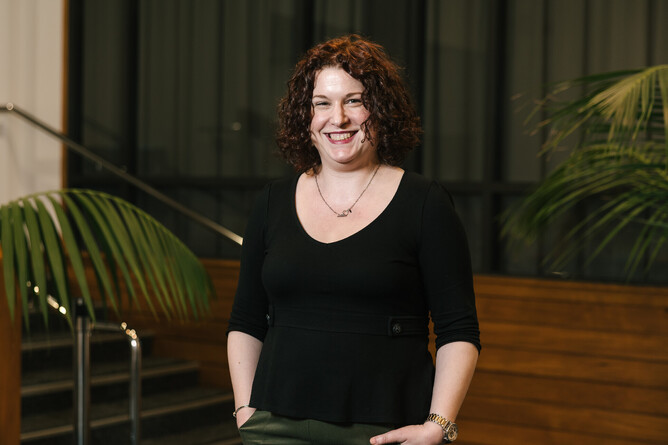Industrial Process heat is a hidden but significant contributor to climate change, accounting for a staggering 40% of global energy consumption and responsible for 34% of the world’s carbon emissions.
Industrial Process heat is the heat used to make products or materials in factories and plants. For example, converting milk into powder, wood pulp into paper or packaging, and producing metals and chemicals. Many of these industrial heat applications use fossil fuels, like gas and coal, to generate process heat, which then goes on to produce greenhouse gas emissions.
In an era where large industries are increasingly pressured to decarbonise due to regulatory and consumer pressure, they are looking for solutions to this problem. Some turn to alternative green energy sources such as biomass, geothermal, solar, and grid-supplied electricity. Unfortunately, these also have increased costs and many have technical uncertainties.
Introducing Kelvius, a pioneering venture founded by Adeline Bartoletti, making powerful strides against these industrial emissions. Their innovative technology is designed to transform how industries, particularly in the food tech sector, manage their process heat challenges.
Kelvius's thermo-chemical batteries will harness the power of chemistry to turn waste process heat into high-grade and storable heat. Designed to store heat over long periods, the batteries will efficiently convert lower-grade heat to high-grade heat, which can then be used as needed across various industrial processes.
This deep technology will provide a more stable energy source, cut operational costs, increase resilience, and enable sites to significantly reduce their carbon footprints.
Meet the Kelvius Team
At the heart of this Sprout Accelerator Spring24 cohort venture is a dedicated team with deep expertise. Self-described as having a Swiss army knife of skills with a growth mindset, they are more than prepared to drive this venture to success.
Adeline brings 15 years of experience as an industrial engineer. She has a background in scaling innovative solutions and a highly successful track record at other successful startups, including Hot Lime Labs, an NZ-based startup producing green CO2 for the horticulture industry.
Working alongside her is Professor Mohammed Farid, a distinguished researcher and serial entrepreneur with 30 years of experience in heat storage and upgrade with related startups. Professor Farid is the Technology Founder for the thermal upgrade technology.
The team also includes two mechanical engineers adept at designing intricate systems from scratch—true “MacGyvers” whose skills add to the innovation and adaptability of Kelvius's solutions. Finally, the team will be joined by a material scientist who has completed her PhD on the Kelvius technology.
Together, they are laser-focused on developing the technology and the future of the venture.
Next Steps and Sprout Ecosystem of Support
Currently, Adeline and her team are in the early stages of development and market discovery.
In the New Zealand market, Kelvius is primarily targeting the dairy industry, which has a high demand for process heat. However, as Adeline’s market research continues, she sees global potential in industries facing similar energy challenges.
With this in mind, their vision is to develop a range of thermo-chemical battery options tailored to meet specific industrial requirements, enabling Kelvius to be adaptable and scalable in diverse markets around the world.
First things first: validation.
“We’re in the starting blocks, ensuring we talk to customers and getting validation, and I’m just burning to play with numbers, engineering and test rigs,” says Adeline. “However, because I am so well surrounded, guided, mentored and coached through the Sprout Accelerator - I know we are more than ready to launch into this step.”
Sprout Accelerator, and the broader Sprout ecosystem, are supporting the Kelvius team to develop an IP strategy, build connections with potential early adopters and secure industrial data to assess the feasibility of their system in real-world environments. Their collaboration is crucial for refining the Kelvius business model, particularly as it relates to the logistics of batteries with their “charging” and “discharging” stations.
In November, Adeline will be joining a delegation of Sprout Accelerator Alumni and CEO Dr Sandhya Sriram to the Asia-Pacific Agri-Food Innovation Summit where she will pitch as an early-stage startup, meeting foodtech manufacturers and equipment suppliers.
Beyond that, Kelvius is focusing on securing funding for pilot plant on-site installation and testing and further exploring the global market for this application.
Driven by their vision of a cleaner, more resilient industrial sector, Kelvius and its dedicated team are on the path to becoming a leading name in sustainable industrial energy solutions.

